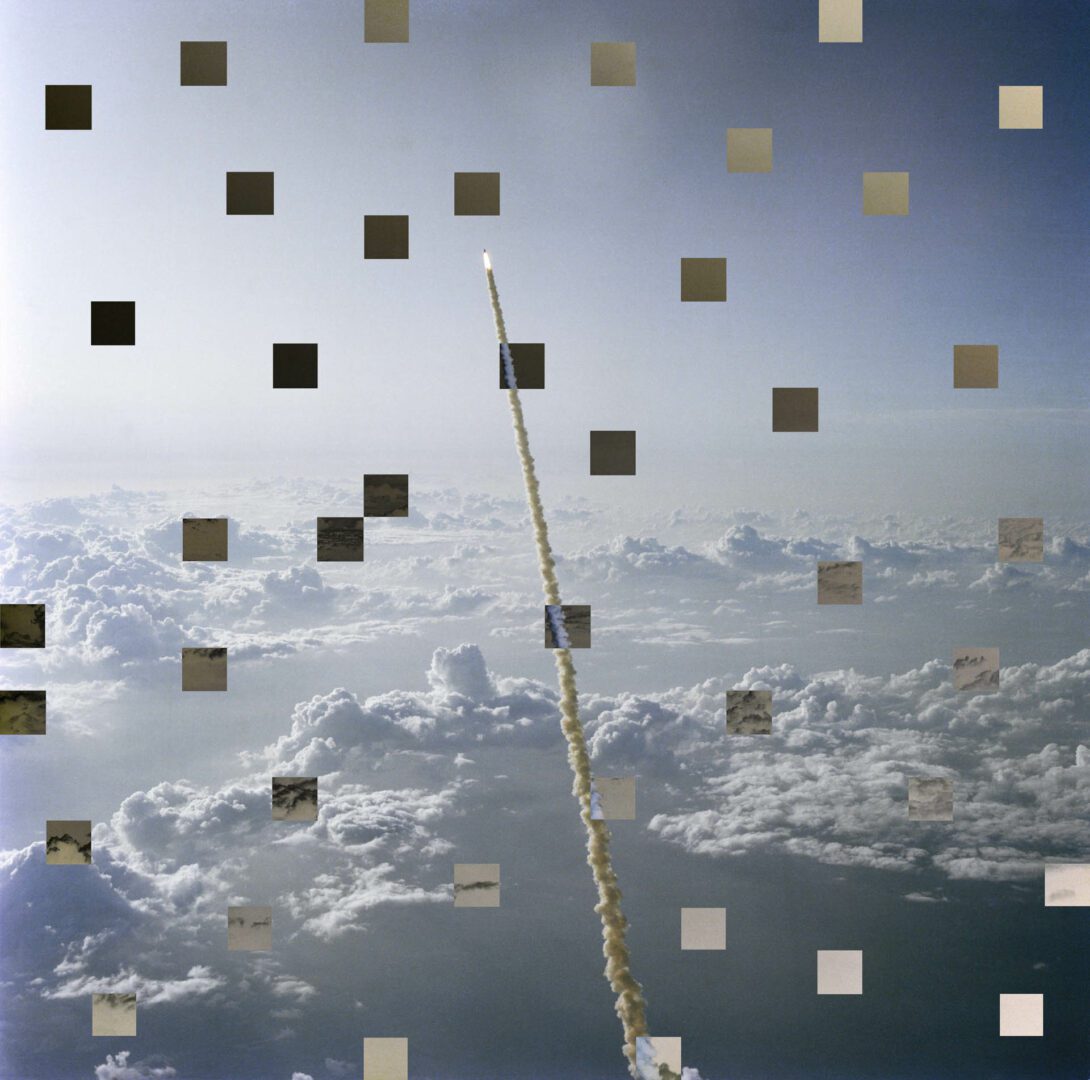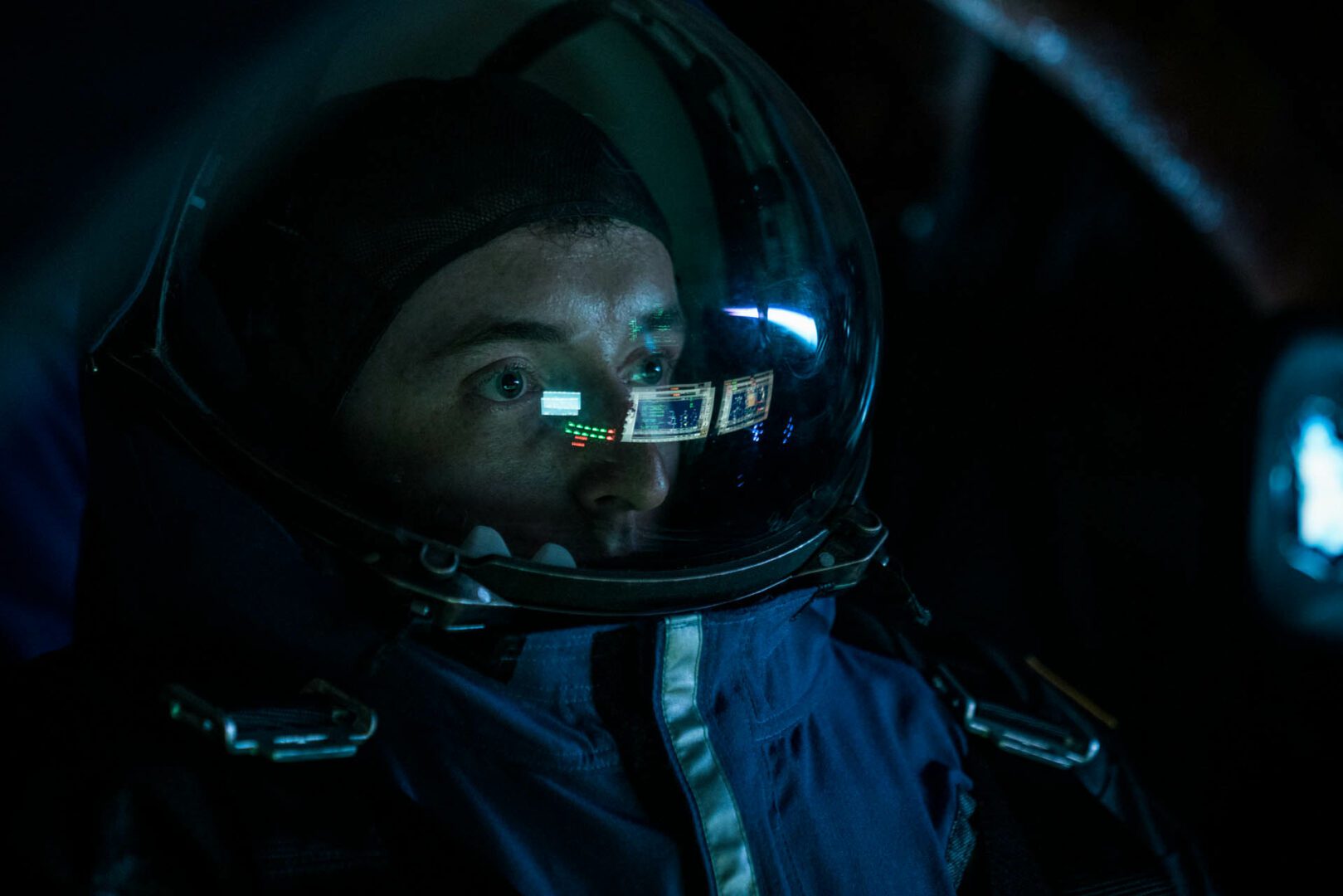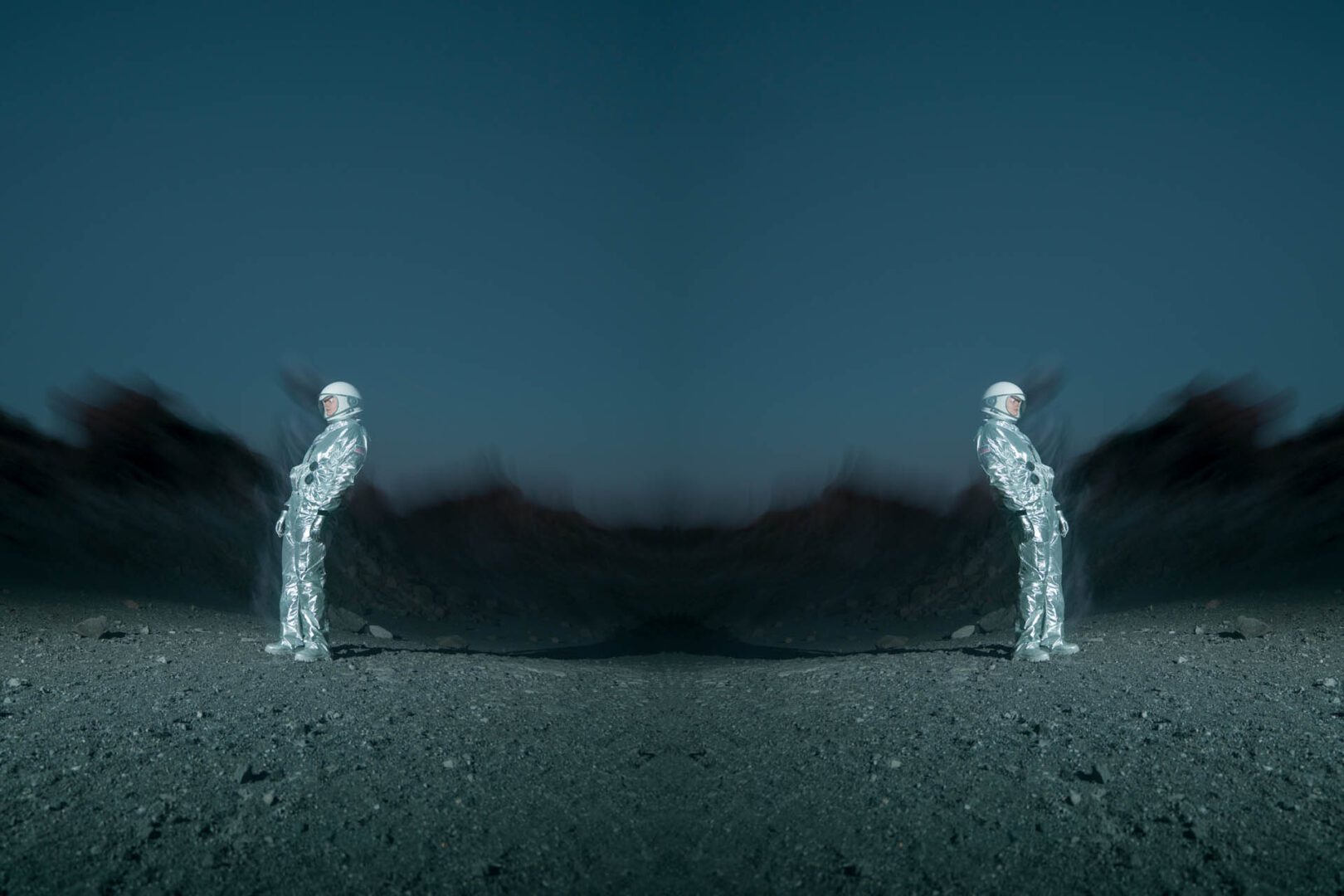In 1983, Sally Ride (1951-2012) made history as the first American woman in space. Gender made her the subject of scrutiny and celebration in equal measure. After retiring, she dedicated her career to encouraging more girls to take up careers in STEM fields. Yet, Ride’s obituary was the first time it was publicly stated that she was in a relationship with a woman. It made her one of only three publicly queer crew members from NASA, all of whom came out after going to space. Today, the agency has still never selected an openly LGBTQIA+ astronaut.

Mackenzie Calle’s photographic series The Gay Space Agency takes inspiration from Ride. The ground-breaking work of docu-fiction confronts the American space programme’s exclusion of queer astronauts. The collection reimagines NASA records, manipulating historical and archival materials to offer a new perspective on the agency’s actions. Several poignant images draw attention to NASA’s 1994 request “to include homosexuality as a psychiatrically disqualifying condition.” The photographs mimic psychological evaluations, and highlight the absurdity of NASA’s demands. They also reference to the Rorschach inkblot test, where the expected response was to see feminine anatomy.

Calle’s body of work also presents a possible future where LGBTQIA+ individuals form their own fictional space agency, the GSA. In today’s world of shifting perceptions of sexuality and the erosion of LGBTQIA+ rights under Donald Trump’s presidency,The Gay Space Agency is a moving tribute to pioneering queer astronauts and a powerful counter-narrative to the story thus far.
Click here to read an interview with the artist.
The Gay Space Agency | ICP, New York | Until 1 May
Image credits:
1. The Gay Space Agency, © Mackenzie Calle. Project funded with support from the Magnum Foundation Counter Histories Grant.
2. The Gay Space Agency, © Mackenzie Calle. Project funded with support from the Magnum Foundation Counter Histories Grant.
3. The Gay Space Agency, © Mackenzie Calle. Project funded with support from the Magnum Foundation Counter Histories Grant.




